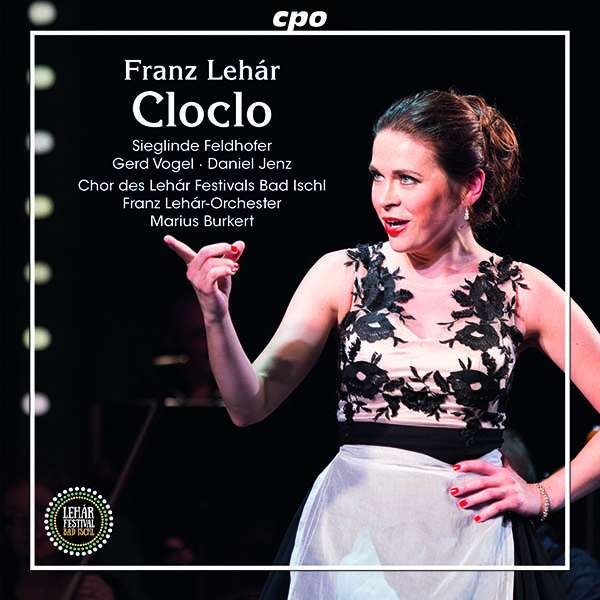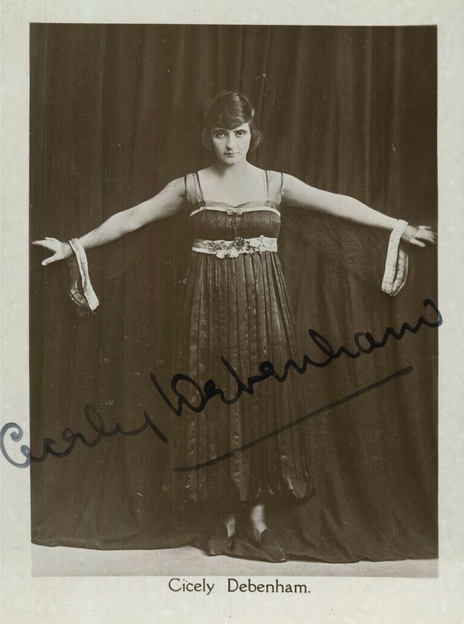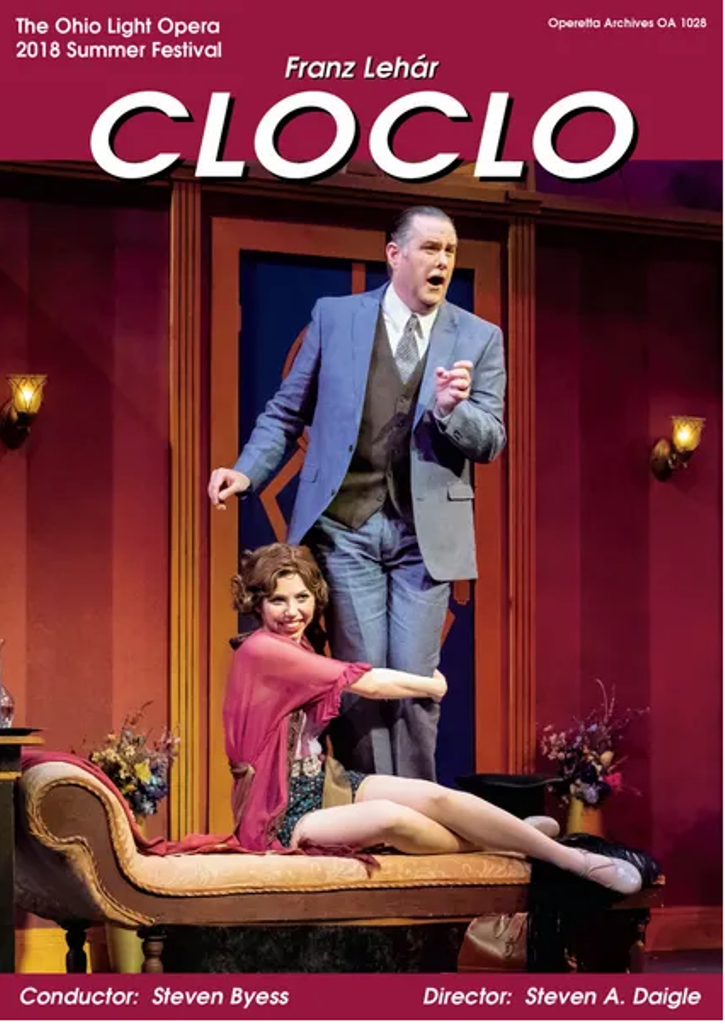Kurt Gänzl
Operetta Research Center
17 June, 2020
Franz Lehár’s 1924 operetta Cloclo is not one of his more famous titles, and it hasn’t stayed in the repertoire like other hits such as Merry Widow, Graf von Luxemburg, or Land des Lächelns. Yet, suddenly there are two new releases of Cloclo, one in German on CD and one in English on DVD. Both are festival productions coming from the Lehár Festival in Ischl and the Ohio Light Opera in Wooster. Both attempted to shed new light on this mostly forgotten score that premiered at Wiener Bürgertheater. Lehár partnered with Béla Jenbach for the 3 act show, who based his libretto on the play Der Schrei nach dem Kind by Alexander Engel and Julius Horst. To understand what Cloclo is all about, here is Kurt Gänzl’s essay from his Encyclopedia of the Musical Theatre.

The CD release of Lehár’s “Cloclo,” recorded in Ischl in 2019. (Photo: cpo)
Louise Kartousch starred as Parisian revue star, Cloclo Mustache, whom the evening followed through the ups and downs of her love affairs with her beloved, but distressingly poor, Maxime de la Valle (Robert Nästlberger) and the wealthy and distinctly married Severin Cornichon (Ernst Tautenhayn), Mayor of Perpignan. Maxime, of course, wins in the end but Severin is a good egg and, having stuck by his little friend through some troubles with the law, and even blushed silently as his own wife, Melousine (Gisela Werbezirk), believing Cloclo to be Severin’s wild-oat daughter, has taken the girl under her wing, he sticks by her when she becomes a married woman.

Viennese operetta star Louise Kartousch presenting herself like many divas of the day did – mostly bare. (Photo: Edith Glogau / Theatermuseum Wien)
Lehár’s score, with tinges of modern dance now appearing alongside the basic waltzes and marches, and much third-act champagne, was the last in which he employed his gay, pre-war Die lustige Witwe style before moving on to the lusher, romantic unhappy-ending mode of his later works. The bulk of the opportunities fell to the heroine. She made her entrance claiming ‘Ich suche einen Mann’, cooed with Maxime ‘Wenn eine schöne Frau besiehlt’ and, having told Severin ‘Geh schon nach Haus zu deiner Frau’, joined with him to dance to the strains of the ‘Tonga Bay’, which she insisted was ‘erotisch … schick und modern’.
The most enjoyable moment, however, came when provincially correct Melousine sang topically about her intention to throw over respectability and follow the ideas recently popularized in the scandalous novel, La Garçonne.
Cloclo was not a triumph. It played from 8 March to 31 May 1924, visited Berlin, where Gisela Werbezirk repeated her show-stealing performance, and was revived at the Johann Strauss-Theater on 4 September 1925 with Gisela Kolbe (Cloclo) and Max Brod (Severin) for a further two-month season during which it passed its hundredth Viennese performance (17 September).

Gisa Kolbe face-down in 1929. (Photo: Atelier Willinger / Theatermuseum Wien)
In the meanwhile, Budapest had seen an Hungarian version (adapted by Zsolt Harsanyi), re-baptized Apukam!
A London production (adapted by Douglas Furber, Harry Graham) with Cicely Debenham (Cloclo), Claude Bailey (Maxime), A. W. Baskcomb (Severin) and Sidney Fairbrother (Melusine) in the lead rôles interpolated four songs by Max Darewksi and one by Harry Rosenthal (the whole third-act music was non-Lehár) and played 95 performances at the Shaftesbury and Adelphi Theatres.

London’s “Cloclo” star Cicely Debenham as seen on a hand-signed postcard.
What seems to have been a film version appeared in 1935, with Marta Eggerth in its title-rôle, as Die ganze Welt dreht sich um Liebe in Europe and When the World’s in Love in America.
Another operetta with the same title, with a score by Ferdinand Pagin and a text by Leo Stein and Alexander Landesberg, was produced at Danzers Orpheum, Vienna 23 December 1902 with Fritzi Massary as the titular Clotilde (31 performances), and a couple of decades on yet another put in an appearance in Paris (Albert Valsien/Francis Kams/Jean Guitton, Eldorado 3 September 1920).

The DVD version of Lehár’s “Cloclo,” filmed at the Ohio Light Opera festival in 2018. (Photo: Operetta Foundation)
An Italian highlight version has been available for some years and gives an idea of the snappy character of Lehár’s score:
To order the English language DVD version, click here. For the cpo CD version in German, click here.

The Ohio light Opera Company reaches the best with this excellent performance of Lehar’s CLOCLO convincing us all that the composeer of GIUDITTA and DAS LAND DES LAECHELNS was ‘a casa sua’ even with the merry world of fun people swinging on modern dances full of pleasure of life. I suggest an operetta lover not to miss the joy of watching/listening to this pearl.And run to get it! A duty.
On the 1929 picture with Gisa (!) Kolbe, the woman standing next to her is none other than Gisela Werbezirk, the Melousine of the world premiere of ‘Cloclo’ !